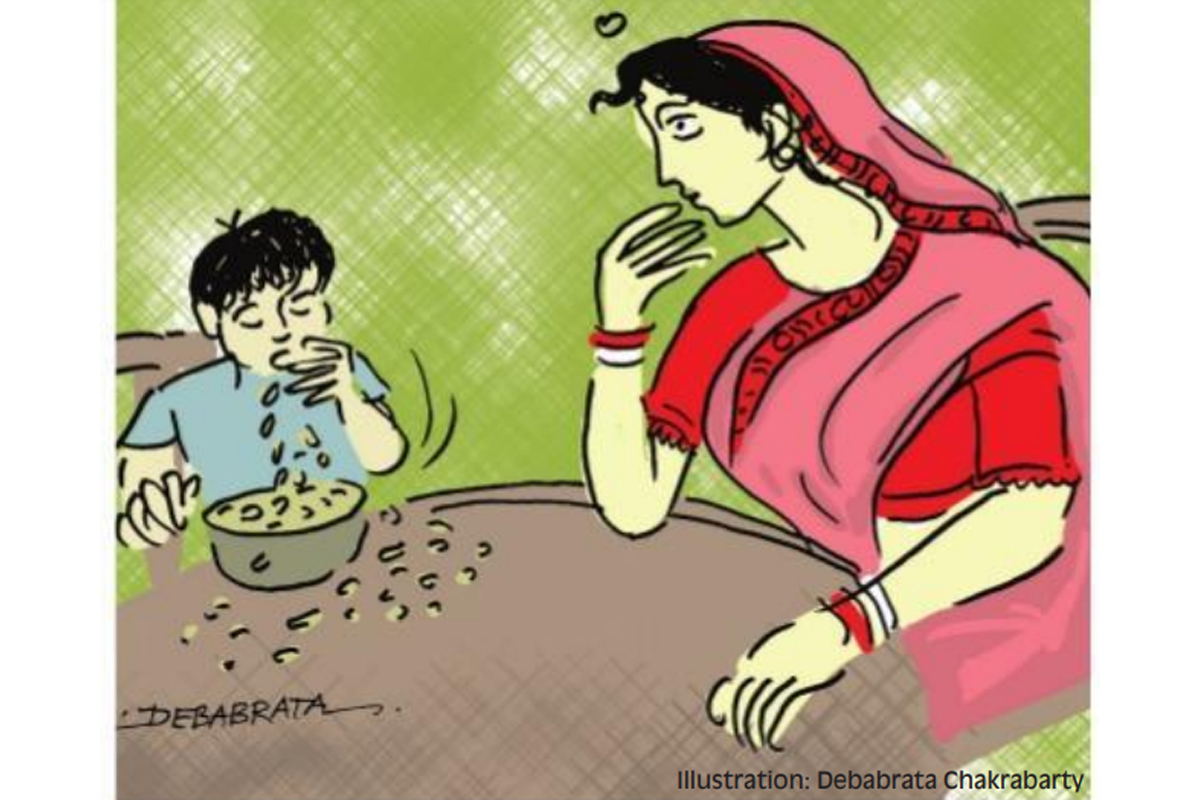I am learning, or re-learning, how to eat. Like everybody else, my mother taught me how to eat. I remember seeing an old photo, now lost, where I am eating a bowl of rice as a baby. Under the watchful eye of a girlish woman, my mother in her late twenties.
I am using my hand and getting some rice in my mouth and spilling the rest on the table and on my clothes. She looks on with indulgent glee.
Advertisement
What is most eye-catching is the expression on the baby’s face. It expresses sheer delight.
It seems to say, “I am eating the most wonderful thing on earth. And I am having immense fun eating it.”
The baby has its eyes solely on the rice. It is totally wrapped up in the business of getting the rice to its mouth. The only thing on its mind is enjoying what it is eating.
That is precisely the way I don’t eat now. I eat now, like everybody else I know, as if I am performing a chore. Something I have to do. Or something I need to do.
So, I eat fast. Before I have finished a mouthful, I shovel another mouthful. Before I have fully chewed a morsel, I swallow to make place for the next morsel. On the occasions that I eat something I really love, I also do what others do. I eat faster.
Nothing makes the obligatory nature of our eating clearer than what we do while we eat. If we thought eating was a pleasing affair, we would pay it some attention. We don’t. We seldom just eat. Many of us read newspapers when we eat our breakfast and sip our coffee; others read mail or magazines when they have dinner.
Those who eat lunch at work, often do so while working or staring at porn or puzzles on their computer screen.
Now that many don’t absorb their news from newsprint, they do so from their television while they eat dinner. With the ubiquitous mobile phone, you will now see solo diners in restaurants clearing their correspondence backlog while savoring a grilled salmon.
If you do none of these things, you at least talk endlessly with a friend or a partner as you vivisect your steak. You are both a poor listener and a poor eater. You have only the vaguest idea of how a chef or a wife has toiled for hours to lend taste and flavor. You could not, with any honesty, compare it to what you have eaten three days ago or in another restaurant. You could not tell me how your first mouthful of cereal differs from the second or third mouthful in taste.
You might, out of politeness, tell your spouse that he or she has served a delicious meal, but much of it is a vague impression or sheer cant. I am told that there are excellent biological reasons for eating slowly and chewing thoroughly, and my mother always cited her three brothers, all doctors, when asking us to be mindful of what was on our plate.
As a loving son, I listened to her quietly; as a disobedient youth, I disregarded her counsel fully. I don’t even have to know the scientific reason to realize that, since we don’t have teeth in our stomachs, we should take time to chew our food so that our body can absorb its benefit. When I attended a Buddhist retreat in Virginia, the dinner hall amazed me.
It was preternaturally quiet, most people eating in silence.
The food was healthy and modest, and the monks were eating it leisurely and respectfully, heedful of what they were taking in. It was a stark contrast to the noisy, rambunctious scene of the average restaurant, which often takes on the semblance of a brassy pagan festival of Roman times. This came back to me recently when I went on a fast for a week.
I ate no food and drank only water. I disregarded the advice of well-meaning friends who suggested I should be under medical supervision and emend the fast with juice or fruit. They feared I would feel weak and light-headed.
I did nothing of the sort and felt wonderful, doing all the things I normally do.
I drove, walked, exercised. Instead of being miserable, I made some interesting discoveries. I was surprised to discover how little was the hunger pang I felt. I realized that I eat more from habit than from need. My body certainly does not need all that I am stuffing into it.
It may be a great idea to stop and give the body a chance to tell you it needs sustenance. Instead of feeling feeble or depleted, my body functioned superbly. Maybe it enjoyed the relief from its digestive duties. I did not have any inkling of weakness.
On the contrary, I felt a certain keenness of mind, some ease of focus, an easier slide into a meditative frame. Since I prepare my own food, I relished the holiday from buying, cooking, baking and washing. Including the time for eating, I felt I had an extra length of time gifted to me. My reading improved and my writing increased. The biggest windfall was that I learned or re-learned how to eat. After the fast, I went to eat some cherries.
They were red and luscious, and I put a bunch in my mouth. I realized my mistake immediately: I was gobbling, not eating, not really tasting the cherries. I started putting them in my mouth slowly, one by one, letting one dissolve completely before I tried the next. I tasted each one, discretely, attentively. They were unspeakably delicious. Just as my mother would have fed me.
(The writer is a Washington-based international development advisor and had worked with the World Bank.)











